Whiplash
 Scott Pfeiffer
Scott Pfeiffer  Friday, December 5, 2014 at 05:15PM
Friday, December 5, 2014 at 05:15PM 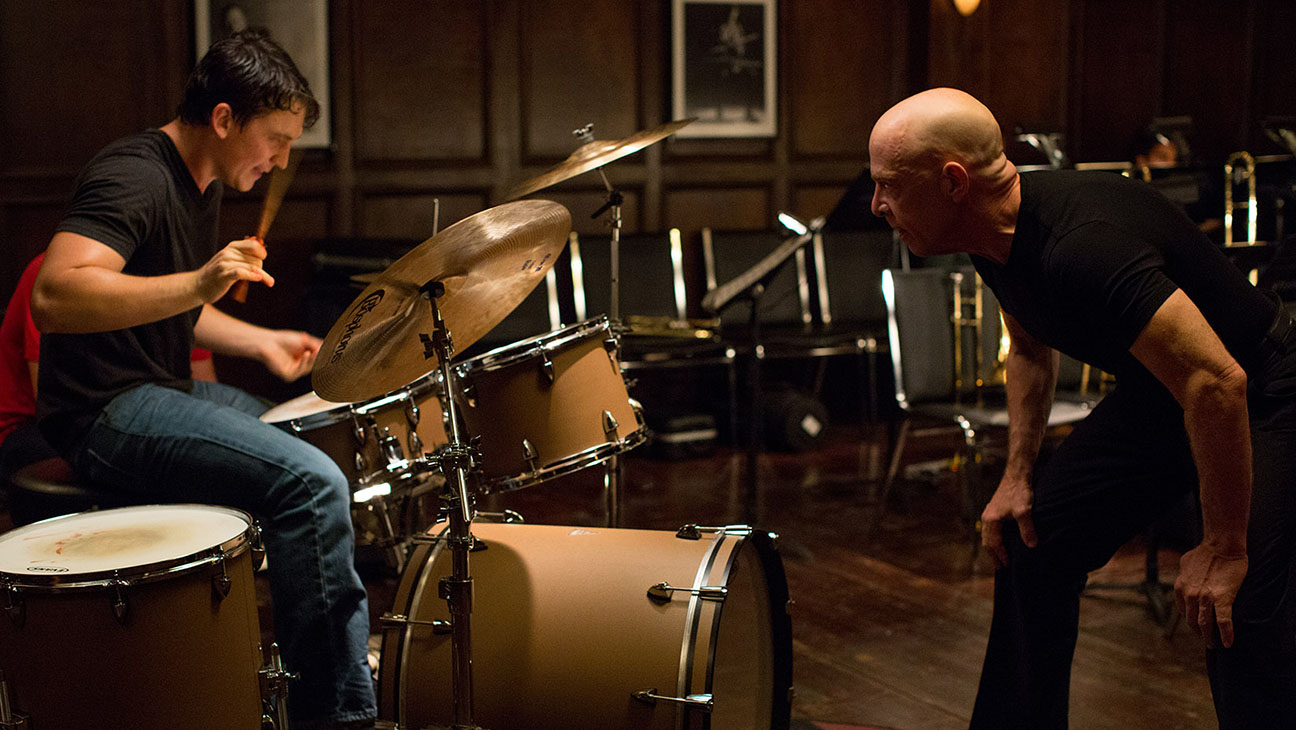
The mentor is Fletcher (J.K. Simmons), one of those charismatic, temperamental, exacting teachers with whom every ambitious student dreams of studying. Dressed in black, he materializes from the darkness, his great bald pate aglow, in a pleasing chiaroscuro composition by cinematographer Sharone Meir. Andrew solos for him. He leaves without comment. On one level, the movie will be a boxing match between Andrew and Fletcher.
As Andrew, Miles Teller gives this performance everything he's got: he sure appears to be playing, or rather smashing, those drums himself, practicing hour and hour, playing until the sweat, and the blood, spatter off the drums. Andrew is driven, focused, obsessed. There is much more of the agony than the joy of making music here. He wants to be remembered. He wants to fly like Bird.
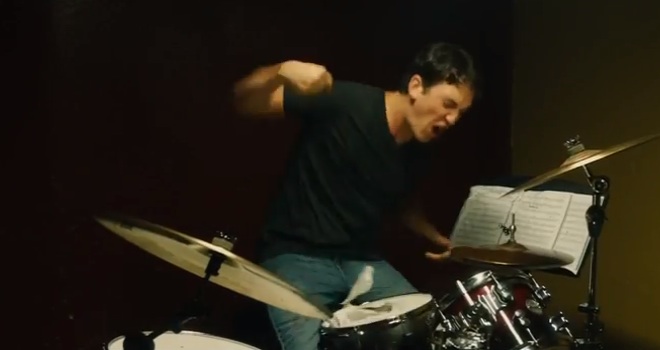
A great teacher can inspire you to do things you never knew you could, but if cruder hands are doing the limit-pushing, the pupil can break. It's a dangerous line to walk. Like a sadist, Fletcher zeroes in on a kid's weakest flaw. To an overweight sax player who is averting his eyes, he shouts: don't look down, there's no Happy Meal down there! He doesn't just cross the line: he rages all over it.
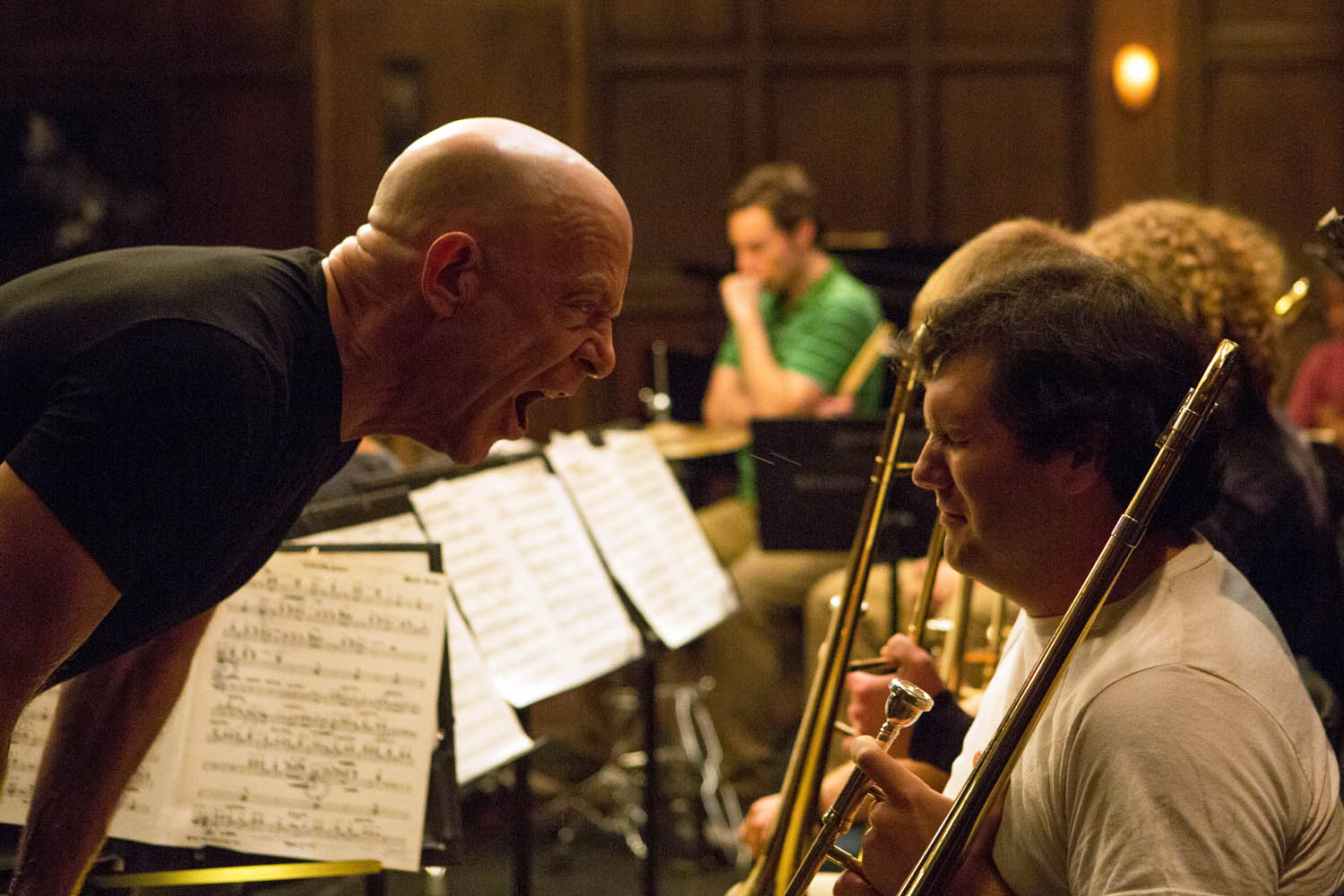
My baby Karolyn, a teacher herself, could not approve of Fletcher's pedagogical methods: punching the kids and throwing things at them does not earn her seal of approval. Yet we had to laugh, he's so wildly inappropriate. Fletcher says all the brutally honest things I imagine a teacher dreams of saying to recalcitrant students but never actually would.
The way Fletcher treats Andrew becomes the way he treats others. His dad (Paul Reiser), whom he loves, who is a writer and tries to give his son some perspective ("it's just life"), perhaps seems weak compared to Fletcher, seems to have settled when he could have published more. Andrew even alienates his sweet girlfriend (Melissa Benoist) when he senses she doesn't have enough focus and ambition. Besides, she'd only distract him.
J.K. Simmons gives a furious, scary performance as Fletcher. His students fear him, and so do we. We steel ourselves when he walks into the room. What's scary is that friendly smile. It's warm, insinuating: as Karolyn said, you could get lost in the folds of his wrinkles. The smile disarms you. He holds himself with an iron core in his ripped body, but at the same time he's relaxed, stylish: a groovy drill sergeant. He'll yell homophobic insults, but he leans into Andrew the way a bounder might corner a lady he likes at a party.
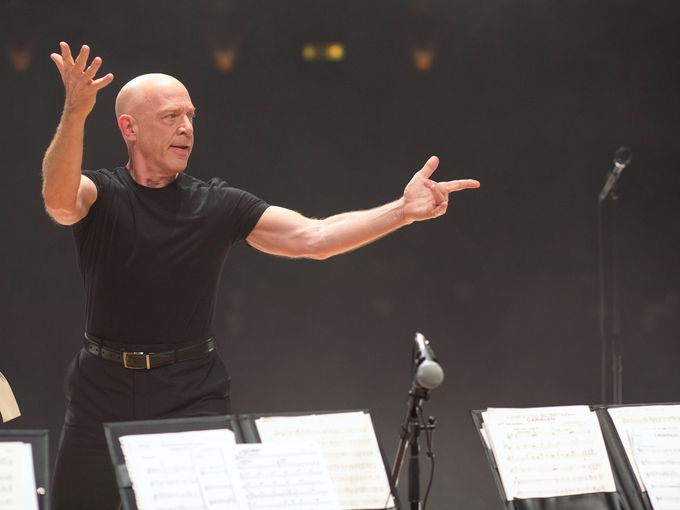
Anyone who loves jazz will be be thrilled by the performance sequences. These are sustained feats of music and montage, bravura, furious filmmaking, a true sensory experience. Chazelle's moving camera and Tom Cross's virtuoso editing put us on that stool with Miles, riding a roller coaster wave of tom-toms, bass drum, and swirling cymbals. The latent drummer in me emerged: I found myself air-drumming along. The filmmaking puts you in that zone, in that bubble, under that spotlight up on stage where it's just you and those drums, and there's one shot. And you're giving it everything you've got. And you're becoming everything you ever dreamed. Not because of Fletcher, but in spite of him. The question the film leave us with: does it amount to the same thing?
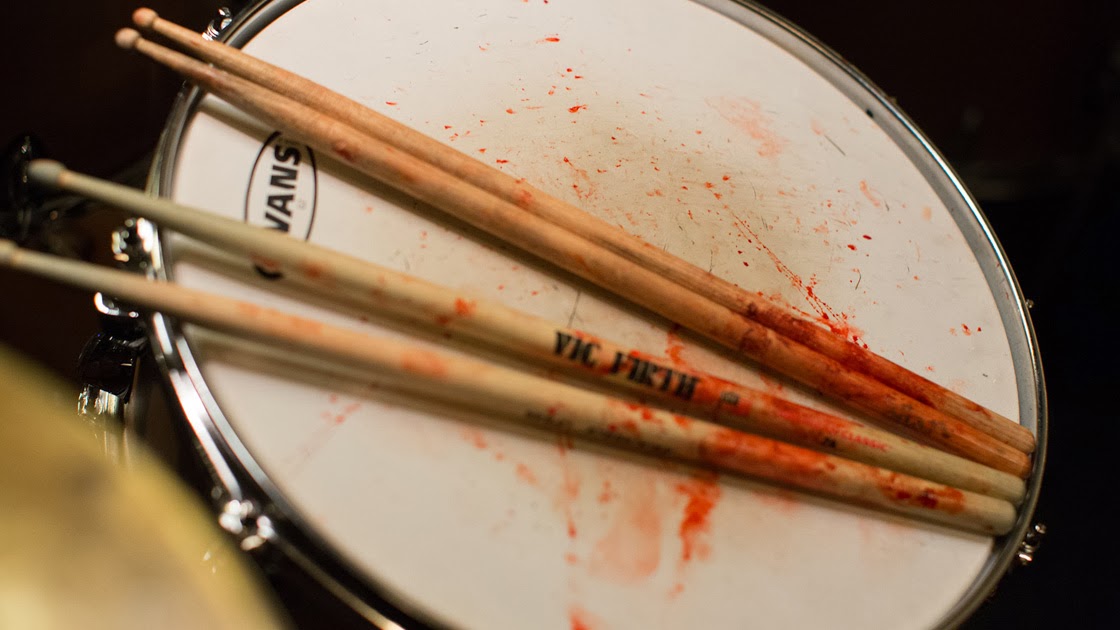
Rating: ****1/2
Key to ratings:
***** (essential viewing)
**** (excellent)
*** (worth a look)
** (forgettable)
* (rubbish!!)


Reader Comments